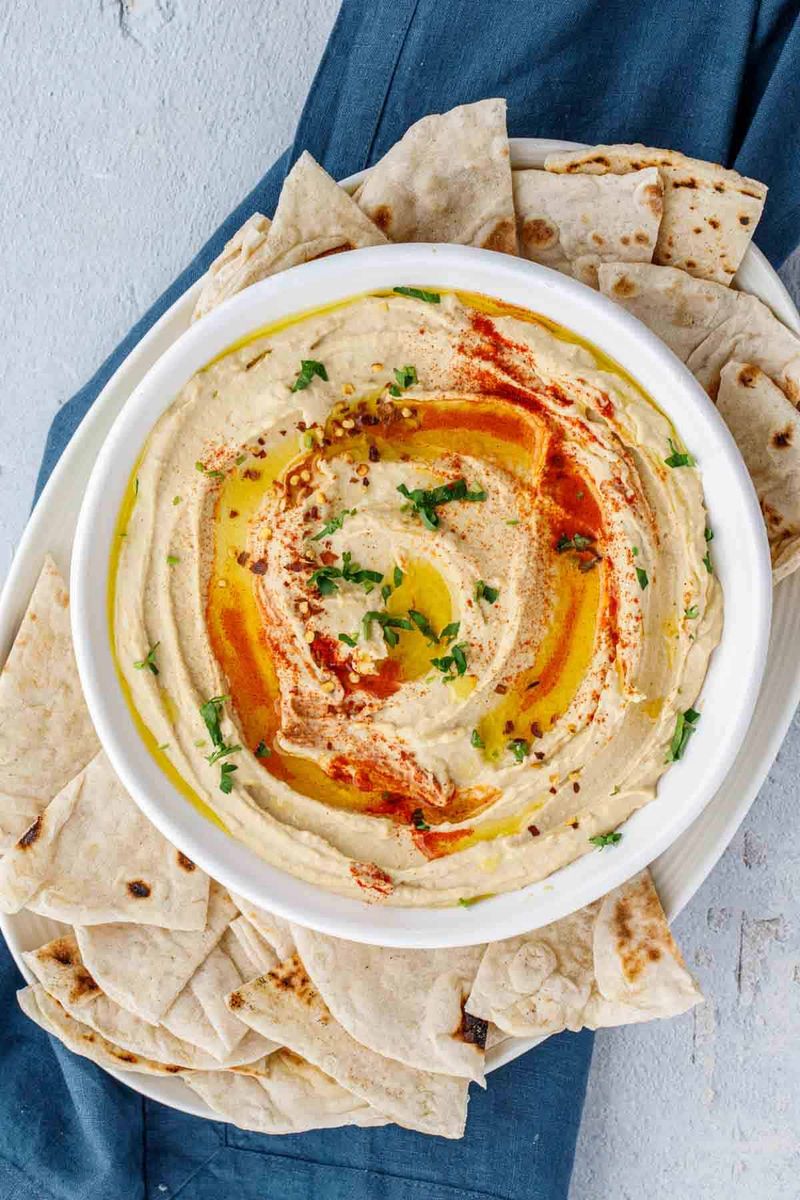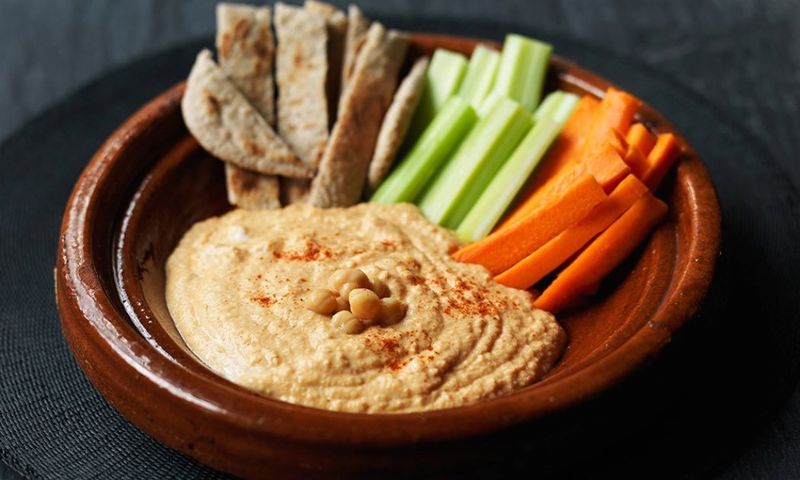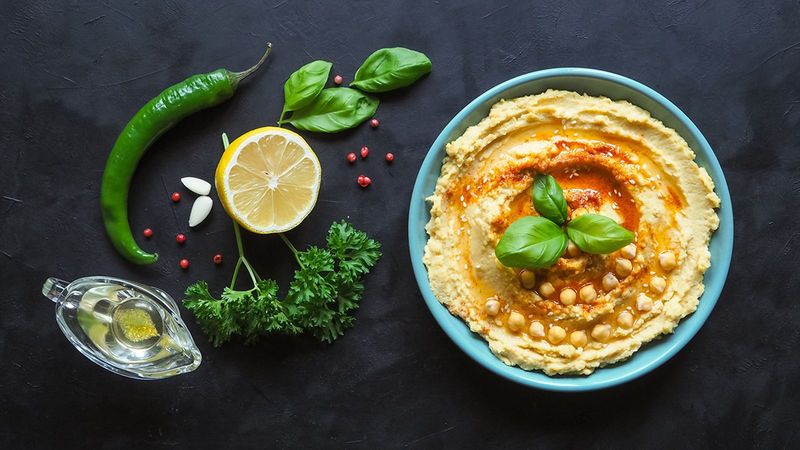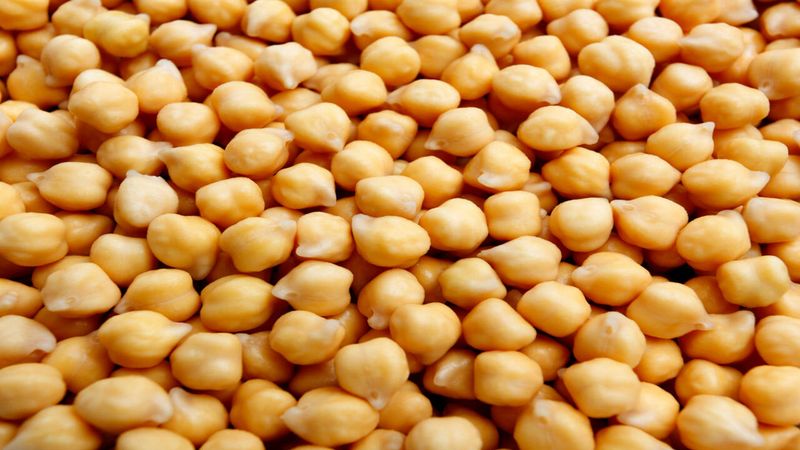7 Reasons Why Eating Too Much Hummus Can Harm Your Health

Hummus, a beloved Middle Eastern spread, is often hailed for its nutritional benefits, but like all good things, moderation is key. Consuming excessive amounts can lead to unexpected health issues. This blog explores seven reasons why indulging too much in this creamy delight might be less innocent than it seems.
1. It’s Calorie-Dense

Hummus, despite its creamy allure, masquerades as a light snack but packs a calorie punch. This is largely due to its key ingredients: tahini and olive oil. Together, they form a caloric duo that can quickly escalate your daily intake. Picture this: a typical serving may seem harmless, yet each scoop carries hidden caloric baggage. Enjoying hummus with calorie-laden dippers like chips or a thick slice of bread makes it easy to overindulge. While it may not feel like a heavy meal, those extra bites can add up, potentially hindering weight management goals.
2. Can Cause Bloating and Gas

Imagine relishing your favorite hummus, only to find yourself feeling bloated and uncomfortable later. This sensation arises because chickpeas, the main ingredient, are rich in fiber and complex carbohydrates. While these nutrients are beneficial, consuming them in large quantities can overwhelm your digestive system, particularly if it’s not accustomed to such a fibrous onslaught. The result? Bloating, gas, and overall discomfort. Moderation is key to enjoying hummus without the unwelcome side effects. A gradual increase in fiber intake can help your gut adapt more comfortably.
3. May Contain Excess Sodium

Sodium levels in store-bought hummus can be surprisingly high. Many brands add salt to enhance flavor, potentially tipping the scales of your daily sodium allowance. Consuming too much sodium can lead to water retention, increasing blood pressure and the risk of cardiovascular issues. If hummus is a staple in your diet, it’s easy to unwittingly exceed recommended sodium levels. Checking labels for sodium content can make a significant difference. Opting for homemade versions allows better control over salt intake, helping maintain a balanced diet.
4. Risk of Weight Gain

Hummus is indeed a healthier alternative to many other dips, but its calorie richness can’t be ignored. Eating in abundance can lead to weight gain, particularly when paired with calorie-dense snacks. As appetizing as it may be, the combination of hummus and its tasty companions can tip the balance of a well-managed diet. It’s crucial to be mindful of portion sizes. While hummus provides essential nutrients, overindulgence might counteract your fitness goals. Moderation is the secret ingredient to incorporating this delightful dip into a balanced diet.
5. Potential for Allergic Reactions

The creamy texture of hummus owes much to tahini, a paste made from sesame seeds, which are a common allergen. Consuming large quantities of hummus can trigger or exacerbate allergic reactions in sensitive individuals. Symptoms may range from mild discomfort to more serious reactions. It’s important to be aware of any existing allergies before indulging in this popular snack. For those with sesame allergies, exploring alternative ingredients or homemade recipes can be a safer option. Awareness and caution are key to enjoying hummus without compromising health.
6. Oxalates in Chickpeas

Chickpeas, central to hummus, contain oxalates—compounds that can contribute to kidney stone formation in susceptible individuals. If consumed in large amounts, these oxalates can create health challenges for those prone to kidney issues. It’s crucial to consider oxalate intake, especially if there’s a history of kidney stones. While chickpeas are a nutritious option, balancing their consumption with other foods is advisable. Consulting with healthcare professionals can provide personalized dietary guidance, ensuring that your hummus enjoyment doesn’t come at the expense of kidney health.
7. Possible Preservatives and Additives

Commercial hummus often contains preservatives and additives aimed at enhancing flavor and shelf life. These ingredients, while convenient, might not align with health-conscious goals, especially in large amounts. Investigating ingredient lists can reveal hidden additives that are less than ideal. Opting for homemade hummus ensures better control over what you’re consuming. By choosing fresh, natural ingredients, you can enjoy the authentic taste without the extra chemicals. Being informed about ingredients empowers you to make healthier choices and enjoy hummus without unnecessary additives.
